Ahoy! Berlin is a Berlin based space for coworking and innovation. The more than 4.000 m2 big space host now freelancers as well as sartups and corporations.
Hi Stéphanie, can you introduce the Ahoy! Berlin project? What is it about?
Our main goal is to create a dynamic yet sustainable community where people have the freedom to collaborate, to explore and to have fun. We stand behind the main 5 shared coworking values – community, openness, collaboration, mutual help and equality, but we added another one – well-being. 
As a second concept line we have the nautical theme which is implemented in every detail in Ahoy. It likens the new startup economy to the open sea with it’s strong currents and unpredictable weather. Ahoy serves to help budding startups and freelancers steer clear of potential pitfalls by connecting them to a wider community of possible collaborators and investors via Tech Berlin sister companies Openers and Tech Open Air while also offering additional services like event management and legal advice.
Ahoy started as fairly small space and scaled up rapidly. Was it the founders’ plans to go this way?
Ahoy! was founded in December 2011 by Nikita Roshkow and Nikolas Woischnik. The first location was in Charlottenburg and was only 400 m2. Over the years, the space grew up to 1700 m2. As a result of this natural and organic growth in September 2015 Ahoy moved to a new location, which currently has over 4200 sqm spread over 3 floors.
Thе scale up wasn’t by accident, but it also wasn’t strictly planned. Our expansion was a result of hard work, willingness to develop the coworking concept, team members’ devotion and community strength.
In December 2015 we opened our second location in Sao Paulo with 450 m2. It’s managed by Felippe Burratini who is an Ahoy! Berlin Alumni. This is a perfect example of the way how the coworking synergy works. 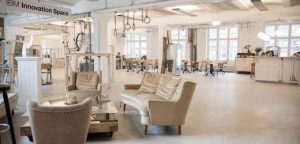
How receptive was the Landlord to accompany this process?
He helped us a lot in our recent growth in the last year – from the moment we moved to our current location until now, we expanded from only 1 floor to 3 floors. Even now the landlord constantly keeps us in a loop for potential new buildings.
Ahoy hosts some bigger companies. What are corporations looking for in a coworking space ?
According to our observations and regular feedback we get from our corporate community members we know that there are 5 main reasons:
- To establish themselves quickly in a new city or a new market
- To reduce costs and risk of new projects
- To get closer to startups and entrepreneurs
- To acquire more autonomy
- To recruit new talents
Is the social and community dimension important in their choice, or do corporation’s employees in your space keep themselves aside as an island in the space?
The companies that use team offices often stay together in groups. Nevertheless, many of the interactions and collaborations between them and the other community members happen in very informal, chill and friendly atmosphere, while having a coffee, a lunch or a drink after work in our open cafe area. That’s the moment when the best ideas are born. The phenomenon known as “serendipity”.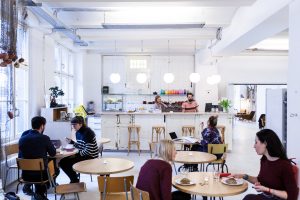
Isn’t the flexibility and offered scalability a sufficient a value proposition for bigger organisations within you space?
It’s not only the space, the services and the possibilities to grow within the space that attract the bigger organisations. It’s also about the social interaction and the access o a professionally diverse community.
Do you work on mingling actively all of your tenants/members, including those working as employees for a company ?
Yes, we do work on that – we organise various community events:
- community breakfasts;
- captain’s’ lunches, strictly focused on bringing together the CEOs of the companies at Ahoy;
- skills exchange;
- drinks after work;
- yoga classes
- German classes.
We also facilitate the process of professional interaction by connecting our members based on the fields they work in. In order to foster the community development we use internal communication channels where they can introduce themselves and approach the other members.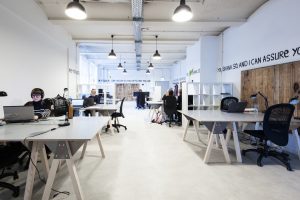
What are the main differences between individual members with respect to the level of engagement with the rest of the community?
I’d say that the level of involvement and engagement in the community depends more on personal traits like collectivism and extraversion than on the type of membership. We have community members from big companies that are actively involved in the community and freelancers who prefer to stay on their own.
Desks VS offices ?
For us it is important to have them both – we offer fix and flex desks, as well as team offices. We’re striving to meet the needs of the freelancers, the startups and the corporations.
Are you working on hosting more corporations in the future ?
We are open to everyone who want to join our space and become part of our community. At the same time we’re trying to keep the balance between freelancers, startups and corporations. We believe that this is the only way we can preserve the community diversity – the aspect that makes the coworking idea so appealing.
Do you see a new level of openness in bringing employees from other departments ?
More and more corporations are open to send entire teams and departments to coworking spaces. However, the process of making that decision still takes more time and it often goes through the several rounds of approbation. There is often as much internal negotiation as there is with the coworking operators. Managers need to convince their superiors and their employees of the value of such spaces.
However, once a corporation embraced that change, the trend spread easily through the entire company.
Do you think medium-size and big companies could outsource a big part of their office and facility management to bigger coworking spaces in the future ?
We’ve seen it’s already happening – from having an office in a coworking space to renting entire buildings managed by coworking companies, corporations are now switching to another way of perceiving the working process.
Ahoy! Berlin will be a speaker at the upcoming Coworking Europe 2017 conference in Dublin.
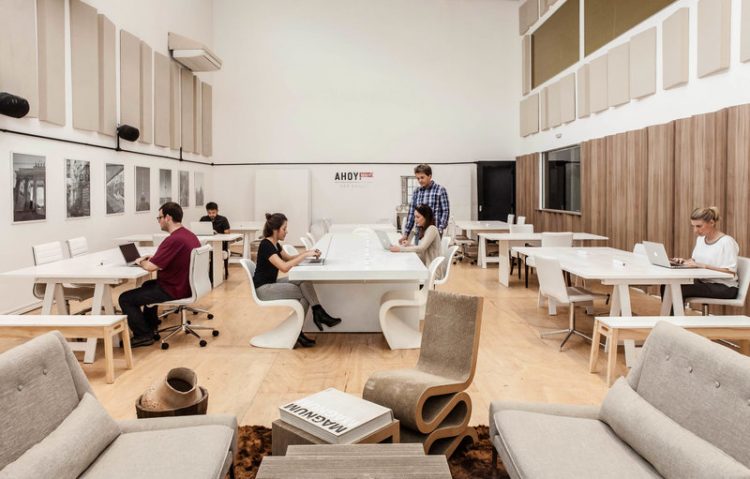
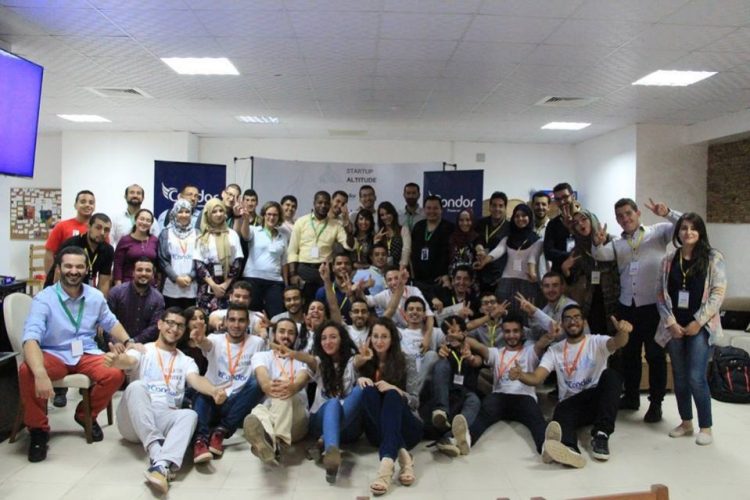
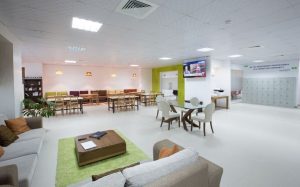

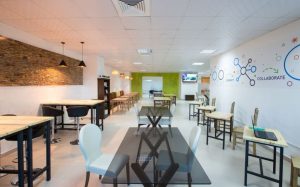
Recent Comments